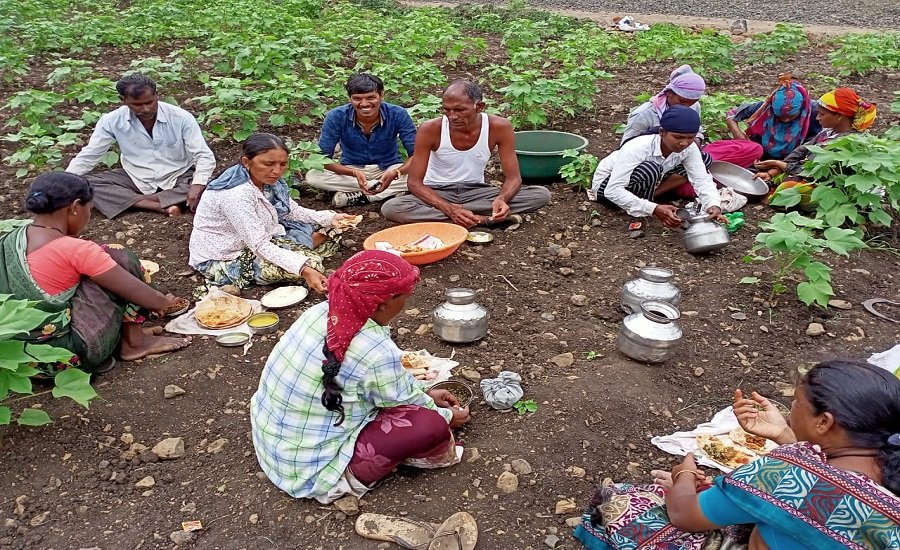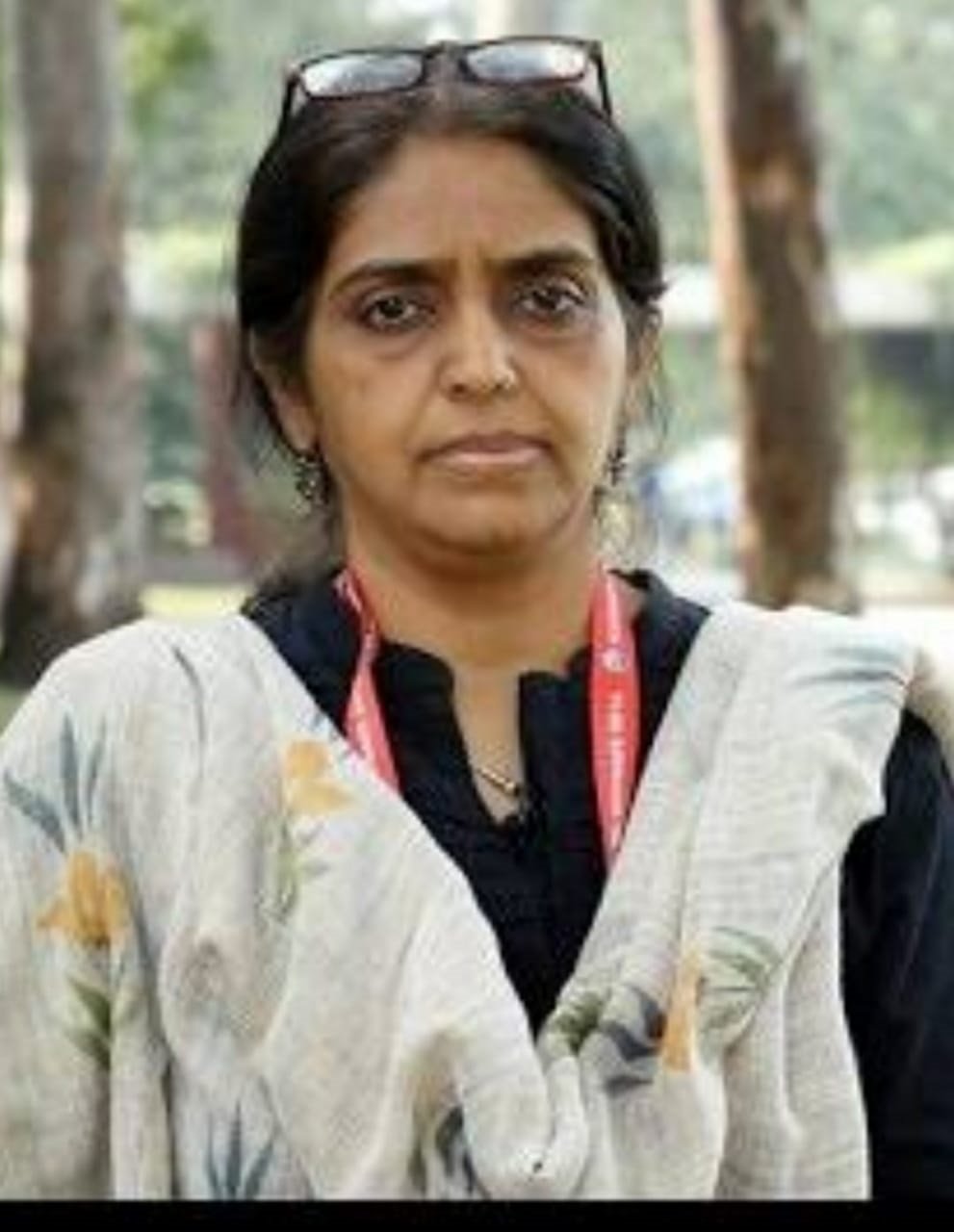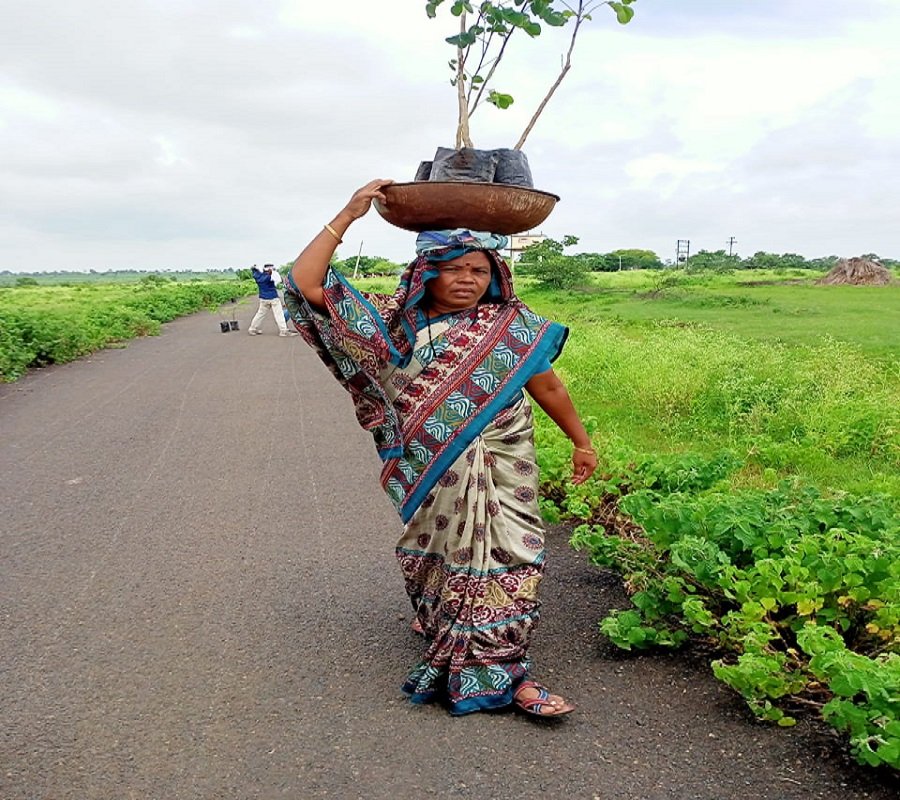

The end of the monsoon usually sees men and women from the district heading to other parts of Maharashtra and the neighbouring states in search of work. But this year, the situation is grim and the chances of their heading to the bigger cities for jobs is bleak
Ashok Kumar | Clarion India
MUMBAI – October usually sees thousands of residents of Hingoli district in the backward region of Marathwada in Maharashtra head to Mumbai, Pune, Surat and other cities where they get temporary jobs that pay relatively better wages.
But this year has been disastrous for the migrant workers because of Covid-19 that has wreaked havoc in all these cities. Ironically, 2020 was one of the wettest years for Hingoli and other parts of Marathwada because of the abundant rains. Average annual rainfall in the region is less than 700mm and in some years (2018, for instance), less than 500mm. This year, however, it almost touched the 900mm mark.

The heavy rains have, however, destroyed cash crops such as soyabean and cotton and farmers are worried about hefty losses. Hingoli is one of the 90 identified Minority Concentration Districts (MCDs) in India and during the Nizam’s era was the military base for the regime. But like most parts of Marathwada, it lacks an industrial base and the residents – both men and women, and of course their small children – head out to the bigger cities in the post-monsoon phase in search of jobs.
“The Covid-19 disaster has disrupted their annual migration to the bigger cities,” Chhaya Padghan, secretary, Ugam Gramin Vikas Sanstha, told Clarion India. “Most of them are at home looking for odd jobs.” Of course, while they got much higher wages while working in Mumbai, Pune and Surat, in Hingoli the wages are shockingly low and the work is exploitative, she notes.
The men have to work for 12 to 14 hours on days they are lucky enough to get a job and are paid a mere Rs200. “Women have to work from 9am to 6pm and are paid just Rs100,” adds Padghan. And loan sharks are hanging around all the time, giving money – with shockingly high interest rates – but not for necessities. “They will not extend a loan for some important need of the workers, but when a man wants to buy liquor they are always there with the cash,” she points out.

The situation will worsen over the coming days as the temporary spurt in activities, triggered by good rains, will soon peter out. And with a bleak possibility of making it to Mumbai or some other big city over the coming days, both men and women in the district will have to suffer hungry days and nights over the coming months, she bemoans.
Seema Kulkarni, a founding member of the Society for Promoting Participative Eco-system Management, Pune, and the national facilitation team member of the Mahila Kisan Adhikar Manch (Makaam) forum for women farmers’ rights, told this correspondent that the Covid crisis has aggravated the situation for women workers in Marathwada. “And since they cannot travel to other parts of the state, they are being exploited locally,” she points out.
Kulkarni is worried that the exploitation of men and women from places like Hingoli will continue over the coming months adding to their miseries. “People from Marathwada who head to western Maharashtra to work in sugarcane fields may not do cane-cutting if their demands are not met,” she says. “The living conditions in their places of work has deteriorated and the workers, especially women, are reluctant to migrate now.”

Makaam came out with a report on the plight of women sugarcane cutters, their health problems and child marriages that are frequent in Marathwada. ‘Crushed Hopes: The Plight of Women Cane Cutters in Maharashtra, the report, covered the plight of more than a thousand sugarcane cutters from places such as Hingoli, Beed, Jalan, Latur and Osmanabad.
With the rains having finally receded and the October heat intensifying, places such as Hingoli usually see largescale migration over the coming weeks. But with the Covid crisis still raging across Maharashtra, Gujarat, Telangana, Andhra Pradesh and Karnataka, there are fears of worsening exploitation of these hapless people over the coming months – whether at home, or for those who migrate hundreds of kilometres in the hope of getting jobs.